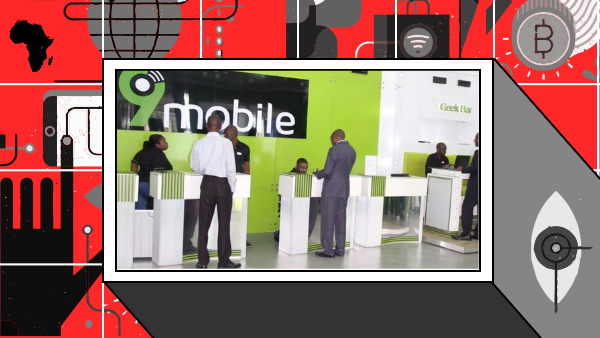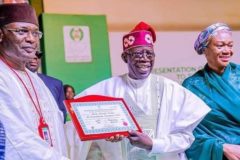In 2015, Nigeria developed a National Renewable Energy and Energy Efficiency Policy (NREEP) document with the purpose of increasing the composition of clean energy in its energy mix and in order to increase access to electricity in the rural areas. Since then, the government has taken baby steps in investing in and stimulating power generation from sources like hydro-energy, solar energy and biomass. Despite this, there are still some major issues affecting the growth of the sector from a regulatory standpoint. First, a look at existing policies.
Policies
The NREEP provides a general legislative framework for renewable energy and energy efficiency sectors in Nigeria and it was followed by the creation of a National Renewable Energy Action Plan (NREAP). The Nigerian Electricity Commission (NERC) also approved some more regulations in the “Feed-in Tariff Regulations for Renewable Energy Sourced Electricity in Nigeria” aimed at promoting investment in renewable energy sources and in order to generate a minimum of 2,000 MW by 2020. The provisions of the Feed-in Tariff regulations apply to renewable energy sources with capacity above 1 MW and smaller than 30 MW for sites connected to the transmission grid or distribution networks. For renewable projects with capacity above 30MW, integrated resource planning will be carried out before NERC will initiate a competitive bid process.
The government has also put together a mini-grid regulation that address issues like tariffs and compensation for mini-grid developers.The mini-grid regulation only applies to projects with energy capacity of between 100 KW and 1 MW. The NREEP, NREAP, Feed-in Tariff Regulations, mini-grid regulations as well as the National Energy Efficiency Action Plan (NEEAP) have signalled Nigeria’s determination to increase access to electricity via clean energy. Still, there is a long way to go.
As part of its efforts to expand its sources of renewables for on-grid energy, the Nigerian Bulk Electricity Trading (NBET) signed power purchase agreements with about 14 solar power project owners. The agreements, signed in 2016 will generate 1,125 megawatts of power and are expected to cost the promoters about $2.5 billion. To supply renewable energy to the grid, a company will need an expression of intent from NBET that they will buy the power from them. Companies are selected by NBET through a competitive bidding process before they can get licenses.
From a funding perspective, the Bank of Industry has committed a 1 billion naira fund to support the growth of the clean energy industry. The Central Bank of Nigeria is also working on launching a 1.5 billion naira with partners to stimulate the growth of the renewable energy sector.

Source: OffGrid Nigeria (2015)
Getting Started
Founders looking to start a renewable energy company in Nigeria must first register with the Corporate Affairs Commission, a standard requirement for all businesses in Nigeria. There is no restriction when it comes to incorporating, the rule is the same for Nigerians and non-Nigerians alike. However for foreign investors, a business permit from the Federal Ministry of Interior is necessary. Registration with the Nigerian Investment Promotion Commission is also required.
For businesses considering mini-grid or large scale projects, it’s important to identify the correct location i.e. land before securing the necessary licenses. In many cases, businesses may need to buy the land or lease it. For companies considering connecting their power to the grid, they’ll need to check that they are situated close to a substation of a transmission network. This will ensure they don’t need to invest in building the infrastructure that will connect their power to the grid. Additionally, these companies need to ensure they review their power purchase agreement from a bank-ability perspective. If the project is an on-grid one, companies need to be certain NBET is willing to purchase the power from them.
Licenses
If a company is just selling solar panels and not generating electricity, there is no need for a license. There are generally four categories of licenses which include generation, transmission, distribution and trading, all issued by the Nigerian Electricity Regulatory Commission (NERC). There’s a licensing framework for on-grid as well as off-grid energy. For grid connected projects, an agreement with the Transmission Company of Nigeria is needed. An environmental permit and a building permit are also required. The environmental permit is issued by the Ministry of Environment.
In order to set up a mini-grid in an area already covered by a distribution network, the company has to enter into an agreement with the network. There are sub-sector distribution companies from the unbundled and erstwhile Nigeria Electricity Power Authority that cover all Nigerian states. They own a franchise over the areas allocated to them. However in some cases, there are areas where these companies do not have a network neither any plans to go there. For those areas, a company can decide to build an independent distribution network. To achieve this, the company will need to get an Independent Electricity Distribution Network license. Here is a more detailed list of the licenses issued by NERC.
Issues
There needs to be an integrated and holistic policy framework for renewable energy in Nigeria. There are a lot of moving parts that need to be put together and the framework should address all the issues that currently exist, although there have been attempts to do so. The government should also focus on accelerating the implementation of its plans and should ease the application process for licenses. There are also concerns regarding tariffs, resolving it will go a long way in encouraging investors to come into the sector. The tariffs need to be cost-reflective for the sector to be more attractive.
The developers who have signed PPAs with NBET have not kicked off their projects yet. Since NBET is focused on getting the developers to implement the agreement, there has been no rush to sign more PPAs. If this continues for too long it will slow down the achievement of the targets set out in NREAP.
There’s a need to shorten the turnaround time for obtaining licenses. For on-grid energy players it takes about two years to get the required licenses and to finalize the purchase agreement with NBET. On the other hand, securing all the required licenses for off-grid energy generation will take about a year. There are also liquidity issues in the energy sector which means NBET is struggling to meet some of its obligations.
Another issue is the recent increase in the import tariff on solar panels which some players in the sector have decried. While some stakeholders in the industry have found a way around it, it has negative implications for the industry and is contrary to the government’s goal to increase the nation’s clean energy capacity. Taking away the tariffs on solar accessories like batteries etc. will also ensure that the cost of providing clean energy to consumers in the country reduces.
The National Renewable Energy and Efficiency Energy Policy set the country on a path to increasing the adoption of clean energy through a robust regulatory framework, there is however a need to accelerate the implementation of the National Renewable Energy Action Plan and address issues like tariffs and liquidity in the energy sector. Doing this will not only make the renewable energy sector more attractive, it will quickly increase access to electricity for the 90 million Nigerians who lack power.





















